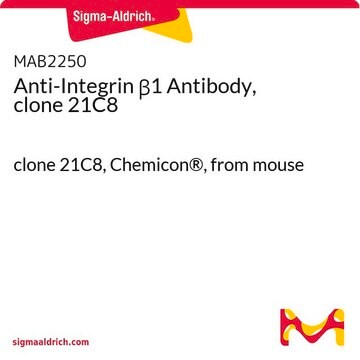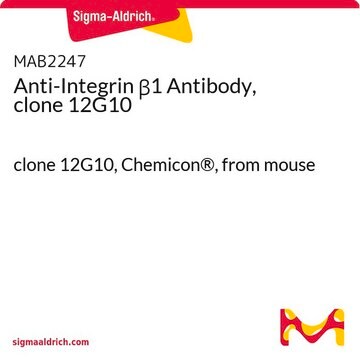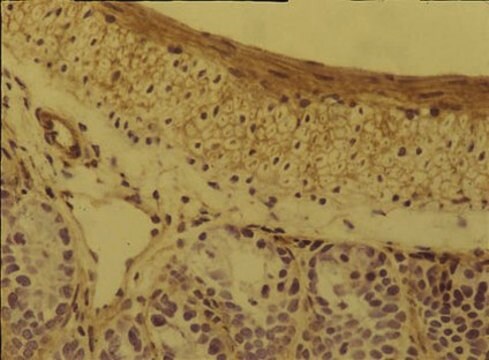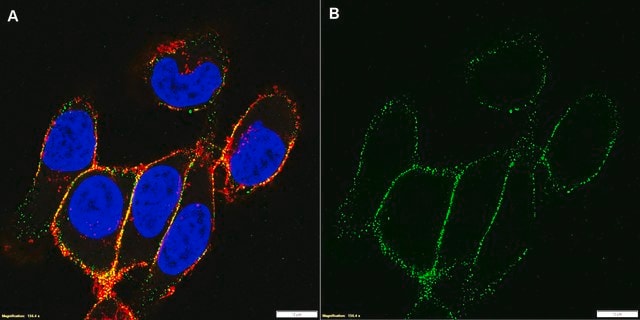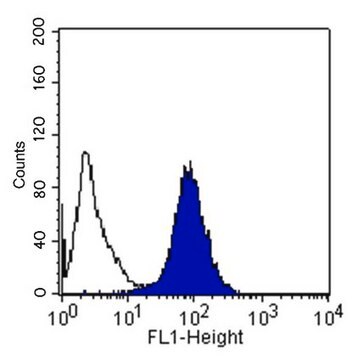AB1952P
Anti-Integrin beta 1 (CD29) Antibody
CHEMICON®, rabbit polyclonal
Sinônimo(s):
CD29
About This Item
Produtos recomendados
Nome do produto
Anti-Integrin β1 Antibody, cytosolic, Chemicon®, from rabbit
fonte biológica
rabbit
Nível de qualidade
forma do anticorpo
purified immunoglobulin
tipo de produto de anticorpo
primary antibodies
clone
polyclonal
reatividade de espécies
human, rat, pig, mouse
fabricante/nome comercial
Chemicon®
técnica(s)
immunoprecipitation (IP): suitable
western blot: suitable
nº de adesão NCBI
nº de adesão UniProt
Condições de expedição
wet ice
modificação pós-traducional do alvo
unmodified
Informações sobre genes
human ... ITGB1(3688)
Especificidade
Imunogênio
Aplicação
Immunoprecipitation
Optimal working dilutions must be determined by the end user.
Descrição-alvo
forma física
Nota de análise
U251 cell line Skin (Basement Membrane)
Informações legais
Não está encontrando o produto certo?
Experimente o nosso Ferramenta de seleção de produtos.
recomendado
Código de classe de armazenamento
10 - Combustible liquids
Classe de risco de água (WGK)
WGK 2
Ponto de fulgor (°F)
Not applicable
Ponto de fulgor (°C)
Not applicable
Certificados de análise (COA)
Busque Certificados de análise (COA) digitando o Número do Lote do produto. Os números de lote e remessa podem ser encontrados no rótulo de um produto após a palavra “Lot” ou “Batch”.
Já possui este produto?
Encontre a documentação dos produtos que você adquiriu recentemente na biblioteca de documentos.
Active Filters
Nossa equipe de cientistas tem experiência em todas as áreas de pesquisa, incluindo Life Sciences, ciência de materiais, síntese química, cromatografia, química analítica e muitas outras.
Entre em contato com a assistência técnica
